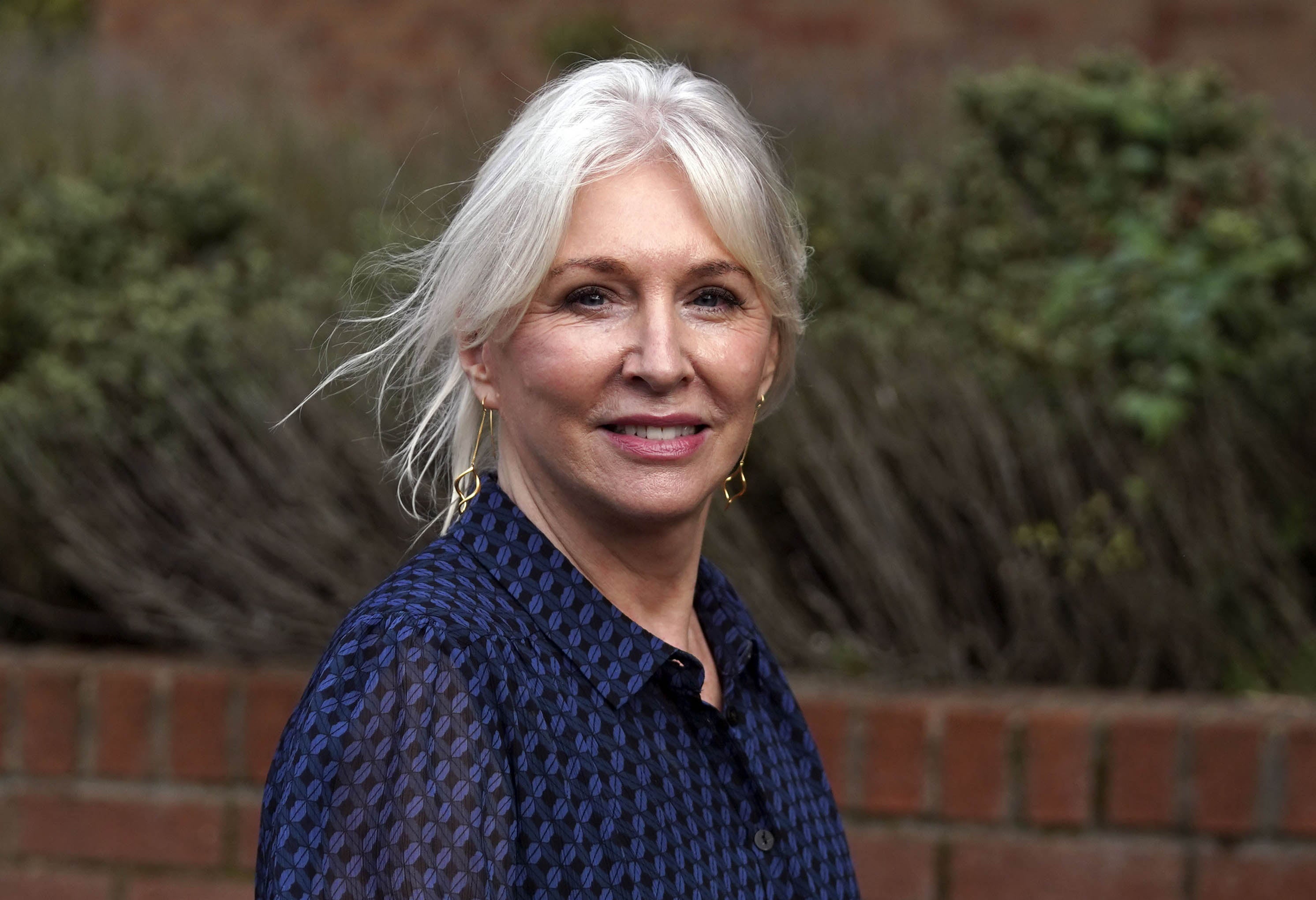Nadine Dorries has criticised the BBC for ‘groupthink’ – something the Tories know all about
It is the Tories’ groupthink on the BBC that needs to be addressed, writes Andrew Grice. Given that Partygate could cost Boris Johnson his job, it’s clear that the corporation has its priorities right


Downing Street’s readout for the media of Tuesday’s cabinet meeting inevitably focused on Boris Johnson’s fightback; he told ministers 2022 would be a year of delivery on “the priorities of the British people”. The briefing did not mention that Nadine Dorries, the culture secretary, came under fire for pronouncing the death of the BBC licence fee without consulting her cabinet colleagues.
Donald Trump would have been proud of Dorries’s explosive tweet saying her settlement on the fee lasting until 2027 “will be the last”. But ministers including Rishi Sunak, Liz Truss and Therese Coffey all queried it. Dorries had overshot the runway and went into reverse in the Commons; pointedly, she did not repeat her death sentence for the licence fee.
Bizarrely, the culture secretary tried to end the debate about the BBC’s future in the same breath as she started it. It was back-to-front politics, another symptom of chaotic government as Johnson fights to remain prime minister. With plan A (“there were no parties”) plainly a joke, he reheated the Tories’ old chestnut of plan BBC. Johnson told the cabinet: “We can’t expect people to keep paying a licence fee just because they own a TV.” To divert attention from his woes on Partygate, he was more than happy to rush out a two-year freeze in the licence fee before the end of negotiations with a blindsided BBC.
Dorries raised even Tory eyebrows by presenting the freeze as helping families in the cost-of-living crisis, although the £159 annual fee works out at 43p a day, a drop in the bucket when households face a £1,200 hike this year in energy and tax bills. (Symbolically, Johnson was so busy fighting the flames engulfing him that he had to postpone talks with Sunak on measures to help families.)
The panicky announcement did not provide the grown-up debate the country needs about the future of public service broadcasting in the Netflix and Amazon Prime age. The settlement will cost the corporation about £1.5bn over six years. The BBC is not crying wolf when it warns of a big impact on programmes, its news operation and jobs. Its income for UK services is already 30 per cent lower in real terms than 10 years ago.
Fortunately, Dorries will almost certainly not be culture secretary when the debate concludes in 2026 – after the next general election. The key priority of the funding review is to safeguard the BBC’s independence. The Tories are blinkered, wrongly believing their own self-serving propaganda that the corporation is guilty of pro-liberal, anti-Tory, anti-Brexit bias, when in my view it bends over backwards to be balanced. They shamelessly use the funding debate to pile pressure on the BBC to be “impartial”, which means less hostile to the government. Dorries gave the game away when she told MPs “the BBC needs to address issues around impartiality and groupthink”.
It is the Tories’ groupthink on the BBC that needs to be addressed. Last month Johnson lambasted its Partygate coverage, reportedly claiming it was “shamefully frivolous, vengeful and partisan” and wasted too much “public time and attention” when its “primary duty” was to publicise Covid booster jabs.
Given that Partygate could cost him his job after Sue Gray’s inquiry reports next week, it’s clear that the BBC had its priorities right. It has played its patriotic part in the pandemic, notably by helping children be educated at home. Brexiteers like Johnson and Dorries should also acknowledge that the BBC, revered around the world, has a vital role in building their “global Britain” brand.
To keep up to speed with all the latest opinions and comment sign up to our free weekly Voices newsletter by clicking here
With younger adults turning away from the BBC, many Tory MPs want to replace the licence fee with a voluntary, Netflix-style subscription in 2027. But wiser heads, such as John Whittingdale, the former culture secretary and no opponent of BBC reform, admit the technology required (fast broadband for all) will not be in place by then.
Another option is direct government funding on an annual basis for the BBC’s core public services. It’s a bad idea as it would make it easier for any government to put party political pressure on the corporation. One benefit of the current system is that it provides financial certainty for several years ahead.
Indeed, reports of the licence fee’s death are exaggerated; it might prove the least worst option for a while yet. In the long run, the answer might well be a German-style household levy. It could be related to people’s income to tackle the criticism the licence fee is a regressive “poll tax”. For example, a BBC levy, with the level set by an independent body rather than ministers, could be added to council tax bills, which would make it easy and cheap to collect. Its time will probably come.



Join our commenting forum
Join thought-provoking conversations, follow other Independent readers and see their replies
Comments